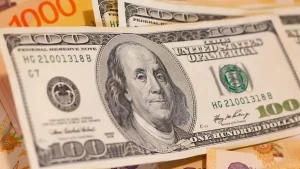«The decision is taken, only the technical and administrative details are missing. The objective is to deactivate the use of terminals sold outside the legal circuit, «a qualified source from ENACOM, the telecommunications regulatory body, explained to the Economist. With the same emphasis, the same source clarified that «the measure is not focused on tourists who buy an iPhone abroad, but in shops and caves that offer medium and high-end cell phones at prices well below the market average» .
From the technical point of view, the control is relatively simple, since each phone has an IMEI, a unique code that the cell phone emits to the network when it is activated and that informs everything: make, model, origin and place of sale, between other things. The «enriched blacklist», as it is intended to be implemented in the country, implies that manufacturers and brands must send the IMEI of their equipment (legally produced or imported) to ENACOM, leaving the rest out.
The measure that the Government intends to implement, in other words, is the implicit admission of the lack of efficiency of the Customs to stop the smuggling of cell phones.
The only «black list» – which is already in force – is nourished by people who report theft or loss so that the telephone companies block the IMEI. «The idea is to add IMEIs in use of cell phones that were not legally produced or imported,» one official explained. «If a cell phone is activated and it is not registered, the phone will have a sign and the user must present the corresponding purchase invoice,» added a senior executive of a multinational.
The «enriched blacklist» is a variant of the so-called «white lists» implemented in Peru, Mexico and more recently in Chile. In those places you can only use cell phones bought in those countries, all in order to stop smuggling. In this way, Argentina tries to complicate the operation of irregular businesses, which affects the entire industry, brands, manufacturers and the phone companies themselves, which account for 60% of cell phone sales in the country.
The illegal entry of cell phones affects almost all brands, especially Samsung, which leads the local market with almost 70% of the market share. The Korean brand, even, initiated more than 30 criminal complaints against shops and caves that offered their equipment through auction sites on the Internet, at prices suspiciously discounted.
With respect to the «enriched blacklist», in the industry they recognize that it is an advance over an old claim. In any case, they believe that technical issues still have to be resolved. «Everyone wants to do it, but the implementation is expensive. I think it has to be done gradually, but the government is very strong and determined, «said a qualified source in the sector.





